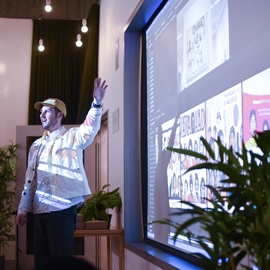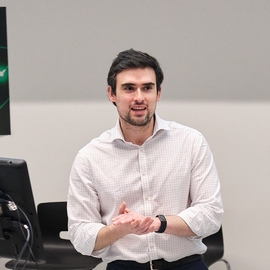Abstract
The field of machine learning is comprised of techniques, which have proven powerful approaches to knowledge discovery and construction of ‘digital twins’ in the highly dimensional, nonlinear and stochastic domains common to biochemical engineering. We review the use of machine learning within biochemical engineering over the last 20 years. The most prevalent machine learning methods are demystified, and their impact across individual biochemical engineering subfields is outlined. In doing so we provide insights into the true benefits of each technique, and obstacles for their wider deployment. Finally, core challenges into the application of machine learning in biochemical engineering are thoroughly discussed, and further insight into adoption of innovative hybrid modelling and transfer learning strategies for development of new digital biotechnologies is provided.
Publication
Biochemical Engineering Journal

Forward Deployed Engineer at Palantir, former PhD student at OptiML (2021-2025)
I am a PhD student at Imperial College London & 2023 Enrichment student at the Alan Turing Institute. I have a background in Chemical Engineering and still enjoy teaching labs at Imperial College. Alongside my work in process systems engineering, I am affiliated with Winchester School of Art producing installations with the Tate on the intersection between AI and art. My interests include Bayesian optimisation, human-in-the-loop machine learning, cricket 🏏, and darts 🎯.

Principal Investigator of OptiML
Antonio del Rio Chanona is the head of the Optimisation and Machine Learning for Process Systems Engineering group based in thee Department of Chemical Engineering, as well as the Centre for Process Systems Engineering at Imperial College London. His work is at the forefront of integrating advanced computer algorithms from optimization, machine learning, and reinforcement learning into engineering systems, with a particular focus on bioprocess control, optimization, and scale-up. Dr. del Rio Chanona earned his PhD from the Department of Chemical Engineering and Biotechnology at the University of Cambridge, where his outstanding research earned him the prestigious Danckwerts-Pergamon award for the best PhD dissertation of 2017. He completed his undergraduate studies at the National Autonomous University of Mexico (UNAM), which laid the foundation for his expertise in engineering.